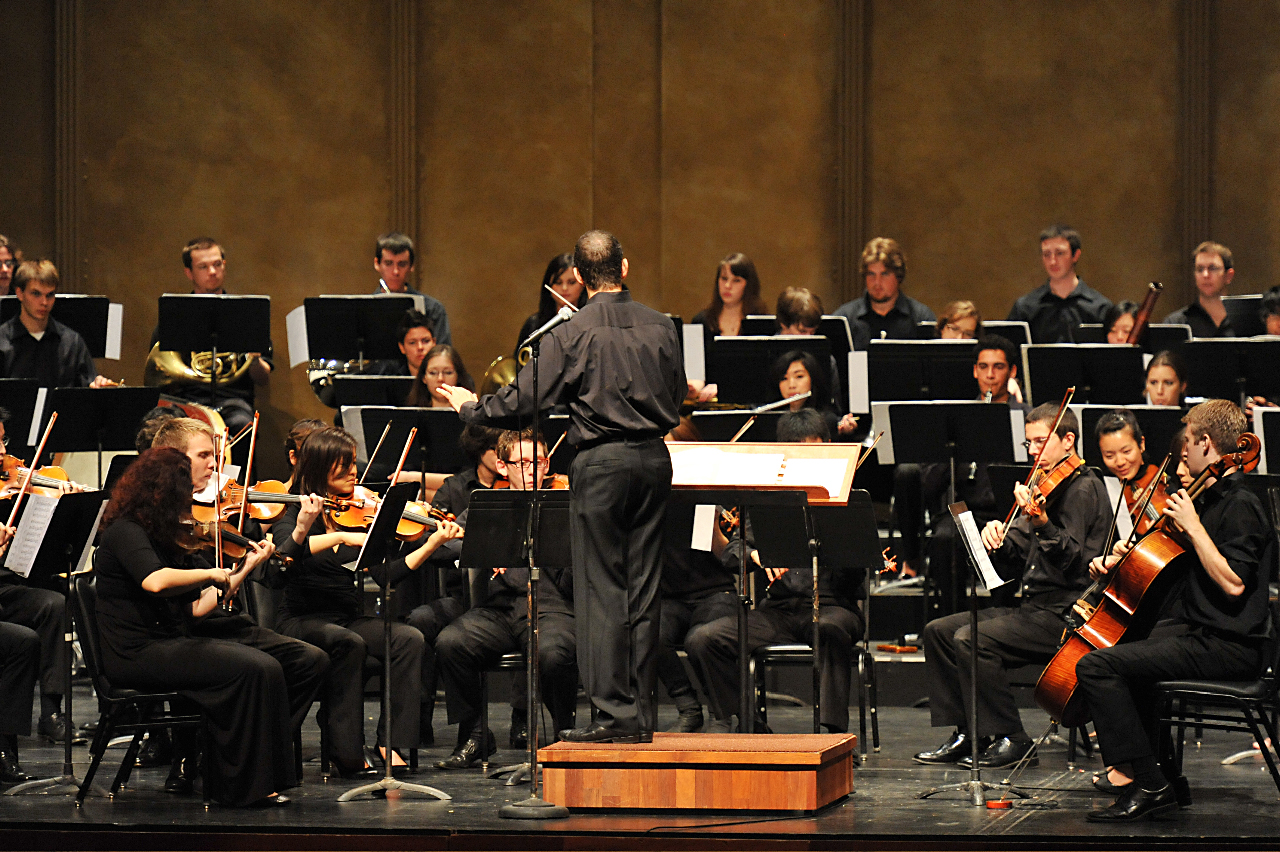UCLA Philharmonia, led by Neal Stulberg, opens the season with Shakespeare-inspired performance, “Orchestral Music from Roméo et Juliette, Op. 17″

By Elia Rogers
Oct. 11, 2011 1:03 a.m.

The domino effect that has befallen the world of classical music conductors started when James Levine, music director of the Metropolitan Opera, damaged a vertebra last month.
The chaos from Levine’s injury and subsequent replacement resulted in the forced replacements of several other conductors across two continents, pulling UCLA Philharmonia into the conductor frenzy when James Conlon, originally set to conduct the Philharmonia’s season opener titled “Orchestral Music from Roméo et Juliette, Op. 17,” was asked to step in as guest conductor for the San Francisco Symphony.
Despite the program’s unusual genesis, Professor Neal Stulberg, director of orchestral studies, will conduct the UCLA Philharmonia on Thursday night as they perform a modified program for the season opener.
The performance will be presented as a related event to the “Shakespeare Opera: Found in Translation” conference in November, sponsored by the UCLA Center for Medieval and Renaissance Studies.
Stulberg, who had to create a new program for the performance night, said he draws the performance’s theme from the conference: music inspired by the works of Shakespeare.
Eve Bañuelos, a graduate music performance student and flutist, also said she and other performers are pleased with the new program.
“I think the program is just perfect. It is a really unique combination of pieces that everyone has heard of and pieces that may be new to some,” Bañuelos said.
The performance will begin with a piece by Carl Maria von Weber titled “Overture to Oberon.” Stulberg said that this was the last piece composed by Weber and is inspired by Oberon, the King of Fairies, in Shakespeare’s “A Midsummer Night’s Dream.”
“It’s an absolutely beautiful piece of music that opens with a horn part called the “magical horn” and takes you through episodes from the opera that are full of fantasy, color and orchestral excitement,” Stulberg said.
The evening will continue with two movements from Hector Berlioz’s “Roméo et Juliette, Op. 17.”
Stulberg said that the first of the two movements portrays the love-struck Romeo brooding about Juliet while hearing the Capulet’s ball in the distance. Stulberg described the piece as both thrilling and revolutionary.
“No composer had ever used the orchestra like Berlioz before. He has not one set of tympani, but two. He makes cellos sound like guitars. He has the whole orchestra playing at tremendous speeds with great intricacy,” Stulberg said.
According to Stulberg, the second movement is a light and wispy scherzo inspired by Mercutio’s soliloquy in “Romeo and Juliet” describing the fictional dream fairy, famous for riding her chariot into the brains of those sleeping and filling them with compelling thoughts and desires.
After an intermission, the performance will continue with Tchaikovsky’s Romeo and Juliet.
Fernando de la Fuente, a second-year music performance student and double bass player, said this piece was easily the most recognizable because it so often used in pop culture.
According to Bañuelos, the Tchaikovsky piece inspires intense emotion among listeners and the Berlioz movements are better musical representations of the play, combining to form two ways of interpreting the play through music.
“While the Berlioz is more emotionally expansive, the Tchaikovsky is more emotionally evocative, heartfelt and deeply personal.”
The concert will conclude with a suite from UCLA music professor Paul Chihara’s “The Tempest,” composed in 1980 while he was at residence at the San Francisco Ballet and inspired by the play of the same name.
Stulberg said the piece was written in the popular style and can be wonderfully set to dance.During rehearsals, students worked with Chihara on his piece because he now teaches at UCLA.
Stulberg said that Chihara has been in attendance for every rehearsal with the students and works with them well.
“He was not trying to push his music on us. He just wants us to represent what had been written in a good way,” Bañuelos said.

